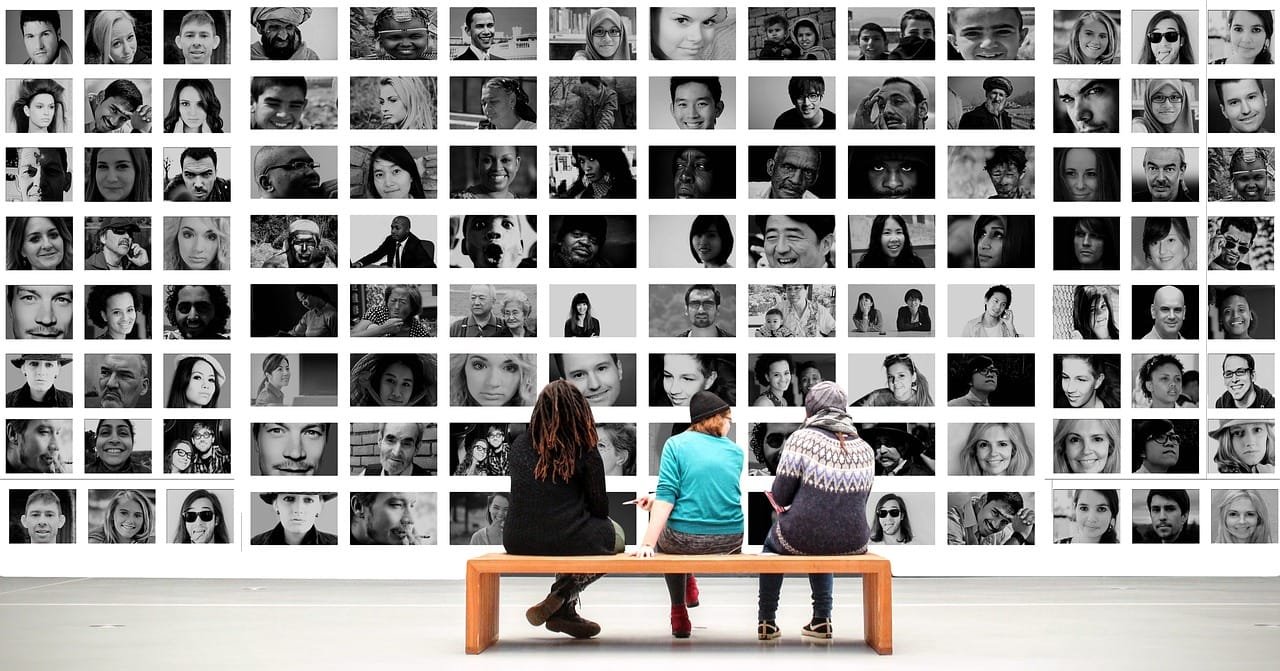A true community is not just about being geographically close to someone or part of the same social web network. It’s about feeling connected and responsible for what happens. Humanity is our ultimate community, and everyone plays a crucial role. ~ Yehuda Berg
It is a particular trait among thinkers and of their thinking to become aloof. This aloofness can continue to escalate with time. It can build into having insight into certain thoughts and matters, whatever may be the subject of consideration, but it also brings detachment from practical reality. What is the practical reality? People – human beings – for one, are a significant part of practical reality. An excess of ideation that develops apart from how it would impact others has taken a strong hold on modern society. It is not as though we are unaware of the existence of others. We are very aware, and even more so because modern technology and the generation of new content keep reminding us of this fact. However, it is the way we become more inclined toward our own perceptions and opinions that affects how we relate to people.

We are connected. We sense this connection most readily with the self, as is quite normal and natural to do. To a lesser extent, we sense this connection with others we share society with. Perhaps we sense that society has been becoming unfeeling, and no one person has the power to change even one other person. Changing a society in a fundamental way is simply not what one sets out to do. There are reasonableness and modesty in such thinking. However, we are prone to realize at some time, that we personally and our society may need some change. This is not possible without being connected. These connections can exist despite prejudices, opinions, paranoia, or even hatred. We will finally have to realize that a society must exist, maybe in some unforeseeable form, even for the growth and development of the individual.
There is obviously a tremendous opportunity today to connect with others. Modern technology makes this possible. However, the very way we are introduced to technology – our devices in particular – is heavily inclined toward personal, user-experience. A young man or woman might buy a mobile phone for its camera. It is not only about taking pictures of others, or of the world but to see how one personally stands in this world that becomes the predominant idea. Little by little, maybe in trying to seek an identity or build one’s image, the preoccupying idea is of how one appears to others. And as this one thought starts to hold the most value, it even starts to become the only thought that a person continues to entertain. What we see therefore is the development of a culture where the world connects at the individual level, but the individual detaches from the world to emphasize his or her own identity.
A young person, naturally observant and inclined to think also sees what is happening. For instance, please read these thoughts by Forrest Tennant, taken from the article 5 Things We Need More Of In Society Today
Many of my friends call me old-fashioned. I am a 21-year-old senior at a college in the Northeast. I, too, own a laptop, tablet, and smart phone. I benefit from a society in which individuals can use these items to make everyday life easier and a bit more entertaining in some aspects. I value the privilege that I have of being able to own and use these products whenever I want to; but, I also value common human characteristics too.
In my own experience, I have gradually become more aware of this tendency of thinking. A lot of the times while thinking or writing, there arises a detachment instead of a sense of being connected to human society. Arianna Huffington in a post spoke of her belief in upholding traditional values, as one can find in the Indian culture. To me, it has been helpful to watch with some admiration, how people, when they connect with others, can do so in meaningful and productive ways. This is not limited to any particular culture, but it seems to be more readily demonstrated out of a personal choice and reasoning. Even though it is also possible to see how rigidity of connections and particularly politics contaminates connections within communities, there is also the alternative way of interacting. Yes, the individual’s choice seems to be the more significant factor than being identified by social or cultural labeling. As David Vognar writes, in the article How Important Is Culture in Shaping Our Behavior?
In his Lyrical and Critical Essays, Albert Camus writes, “Men express themselves in harmony with their land. And superiority, as far as culture is concerned, lies in this harmony and nothing else. There are no higher or lower cultures. There are cultures that are more or less true.”
Just as cultures become the defining forces for communities, an insistence on the self is becoming the overhanging, insidiously spreading culture among humankind. What do you think of the emphasis on the self? Do you observe this as well and how it is shaping modern society in unforeseeable ways? Is this the desirable course we should continue to walk, or is there a need to enhance our awareness of others?

